This week, BYCS is launching or showcasing five impactful programs that can help any city, anywhere to become more cycling-friendly. These programs are in the spotlight at Velo-city, the world’s biggest cycling conference. Here’s what you need to know
Dublin, 28 June 2019
Cities around the world are waking up to the ways cycling can help them address a range of social and environmental challenges. But many cities still struggle with knowing how to start or make progress. This week BYCS is launching or showcasing five innovative concepts that can help any city, anywhere to advance cycling progress. They are being showcased at Velo-city, the annual international cycling conference that has brought over 1,000 cycling advocates, bike brands and businesses to Dublin.
1. Bicycle Mayors
Bicycle Mayors are independent city leaders who bring together all corners of society around new ideas that can accelerate cycling progress. They are using the bicycle to address immediate challenges like air pollution and health, road injuries and fatalities, breaking down social barriers and enabling people to access essential services. Already active on every continent, BYCS aims to have 200 Bicycle Mayors by 2020.
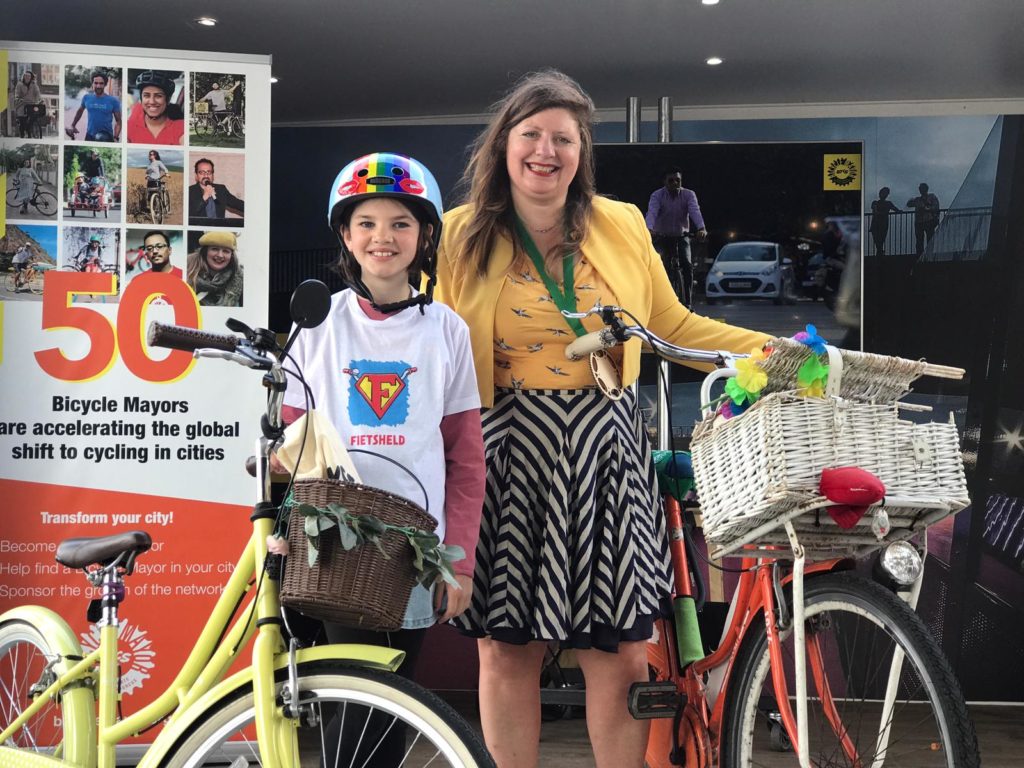
At Velo-city, Donna Cooney was officially inaugurated as the Bicycle Mayor for Dublin, becoming the landmark 50th Bicycle Mayor appointed to the network. One of the areas Donna will work on is to support safer cycling for young people. She has already appointed a Junior Bicycle Mayor to help her in this; Aoife Kelly, aged ten. Dublin becomes just the second city to have a Junior Bicycle Mayor, after Amsterdam. Any individual or city is entitled to apply to join the network. In total, five Bicycle Mayors attended or spoke at Velo-city, and they formed a mini summit with BYCS to plan the network’s impact growth.
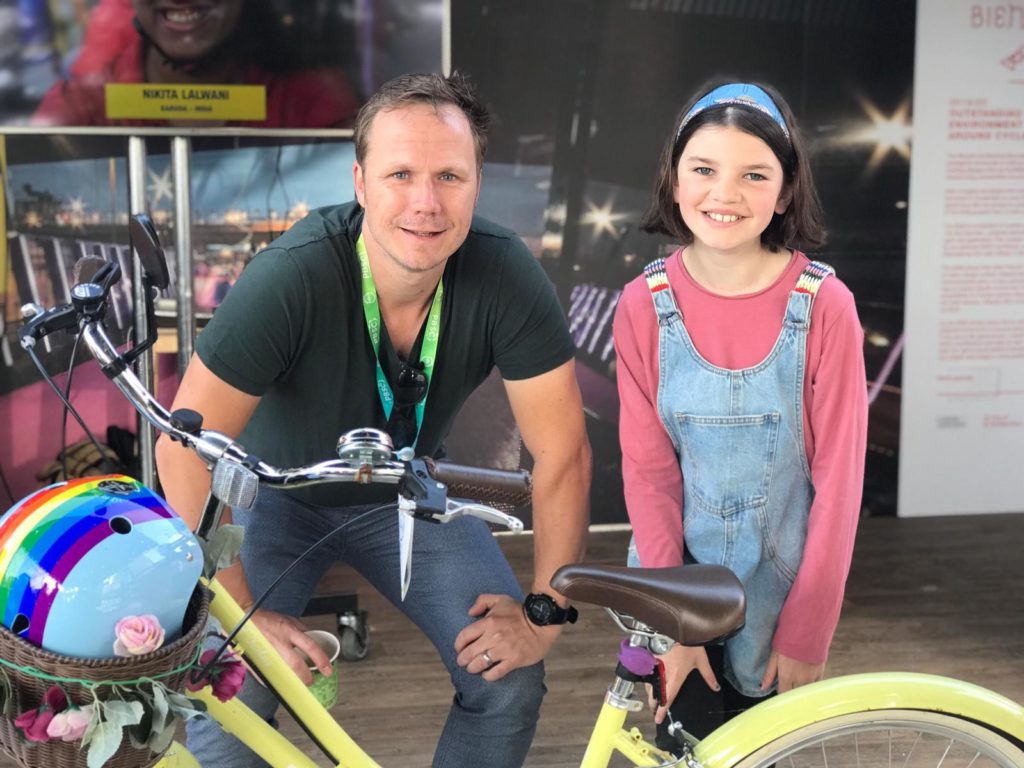
2. Impact Index
BYCS’ Impact Index provides comprehensive but accessible insights on current conditions and opportunities to increase cycling in a city. Using open-source geographical, socio-economic and mobility data, BYCS is able to visually represent enormous opportunity spaces that cities can uncover through targeted investment in cycling. Instead of forming a competitive ranking of cycling cities, the Impact Index is designed as an encouragement for cities to share their knowledge, practices and insights, to enable the creation of human and cycling-centric cities for everyone.
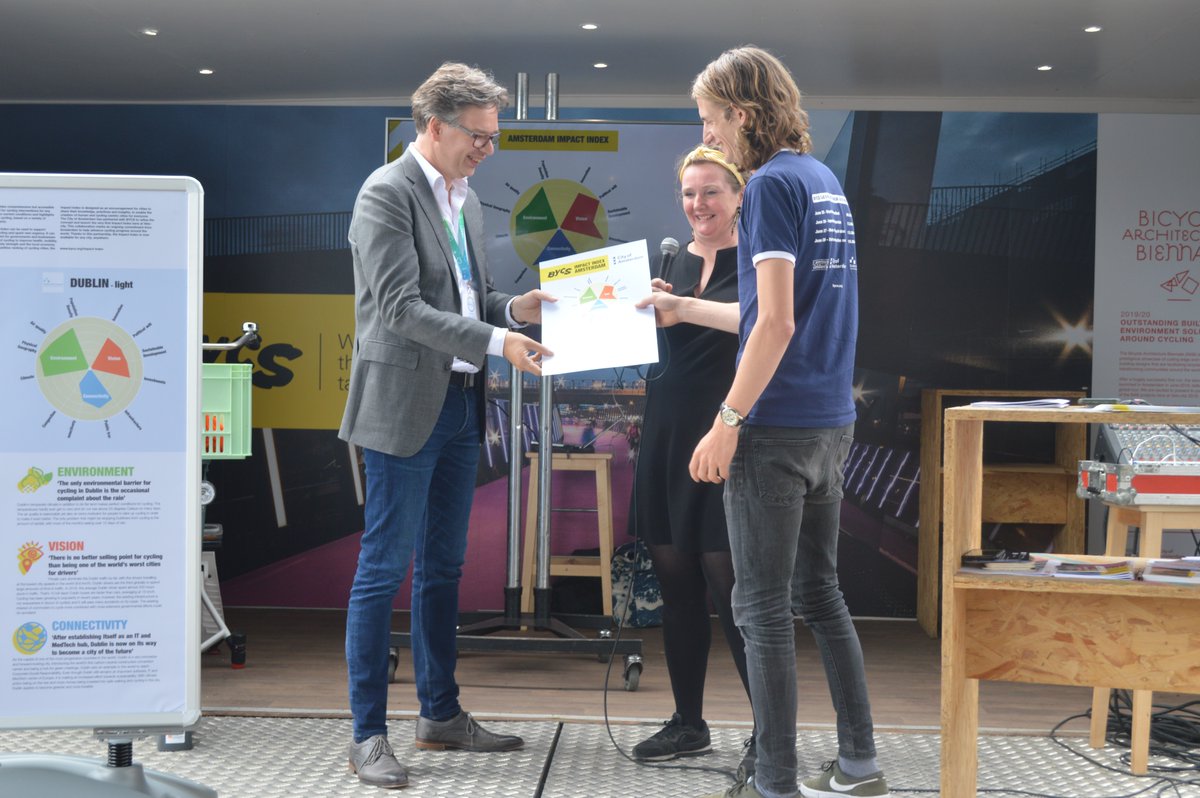
The tool has been refined via small pilots developed with Mexico City and Dublin. A first full scale version was then applied on Amsterdam with the support of the municipality, and officially launch it at Velo-city. Whilst the Impact Index tool is still developing, thanks to the collaboration with Amsterdam, it is now ready to be used by other early-adopter cities around the world.
3. BYCS Labs
BYCS Labs are highly collaborative spaces designed to bring together broad sections of society, leading towards co-created solutions that stimulate city transformation through cycling. They are the ideal setting to apply international expertise while developing new ideas based on the local context. The labs get a broad range of stakeholders together to make the solutions a success. For organizing partners, BYCS Labs can also be a key space to share knowledge, welcome visiting delegations, provide a space for network events, and conduct research.
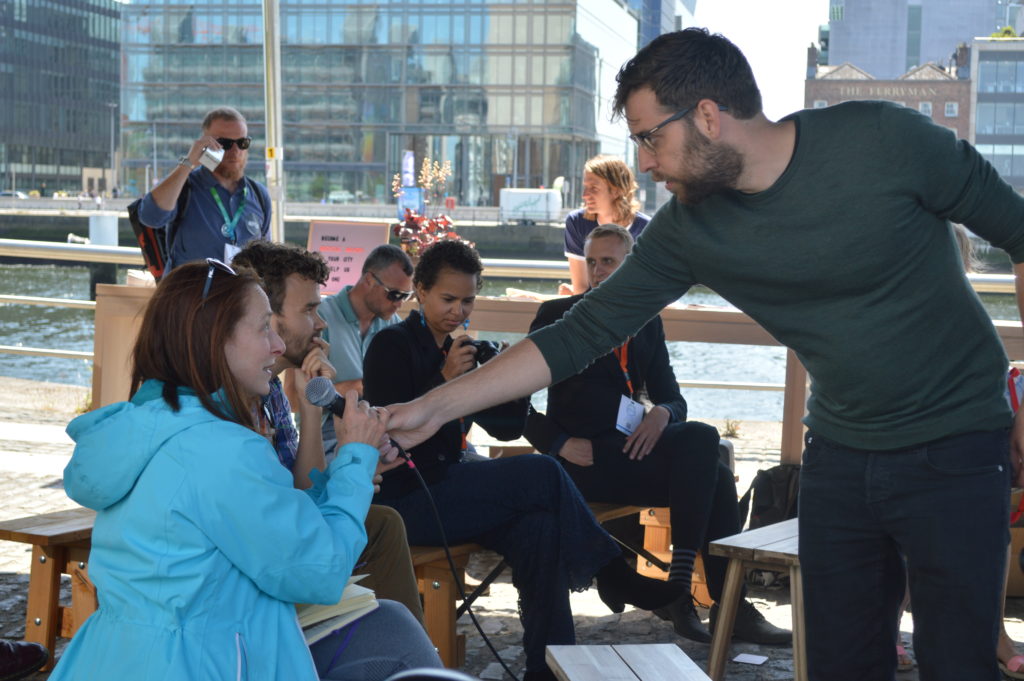
BYCS has been operating Labs in the Netherlands for three years, as well as a number of pop-up labs in cities such as Munich and Rio De Janeiro. In Dublin, a BYCS Lab has been open all week as part of the official programming for Velo-city. The lab will then reopen in September in a partnership with the city’s Trinity College.
4. Bicycle Architecture Biennale (BAB)
The BAB is a prestigious showcase of cutting edge and high-profile building designs that are facilitating bicycle travel and transforming cities and communities around the world. It has been created to inspire people to imagine new possibilities for human-centric cities. After its high-profile launch in Amsterdam last week, the BAB has been on display digitally all week at Velo-city at the BYCS Lab. The full BAB will now go on international tour – any city or organization is open to apply to host the BAB. Bringing the BAB to a city provides is a unique chance to align with cutting-edge and innovative projects, respected global architecture firms and brands.
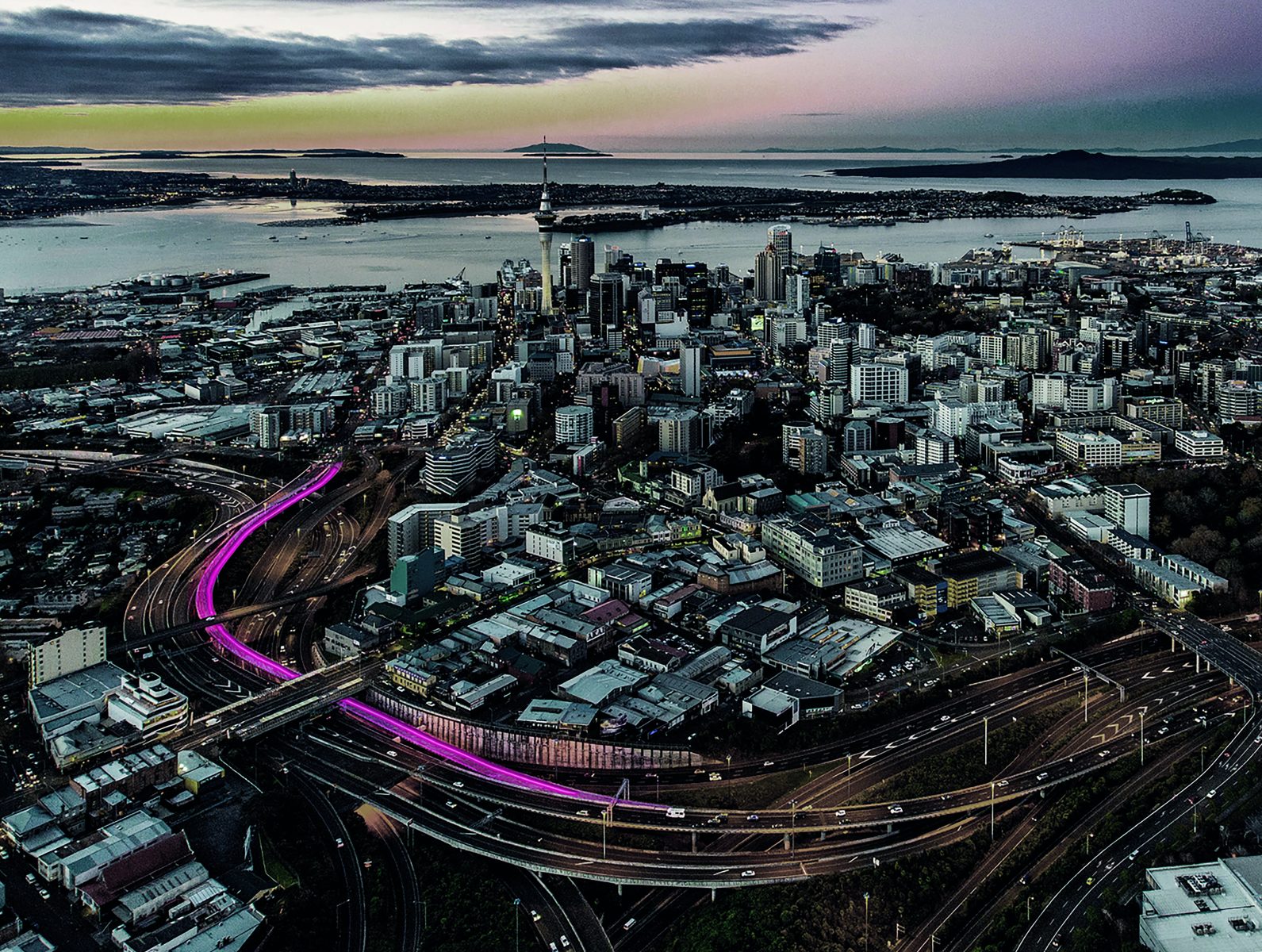
5. BYCS to Work
Biking to work works. For individuals, you save money, become fitter, improve your mental wellbeing and reduce your environmental impact. And organisations that have more people cycling to work not only demonstrate that they are responsible employers but also see healthier, happier and more productive employees. BYCS to Work is an engaging, effective and measurable bicycle commute stimulation program.
At Velo-city, Maud de Vries, CEO of BYCS and Sathya Sankaran, our Bicycle Mayor for Bengaluru, India are speaking to delegates to showcase the success of the program and its intuitive dashboard, opening it up for businesses and governments around the world.
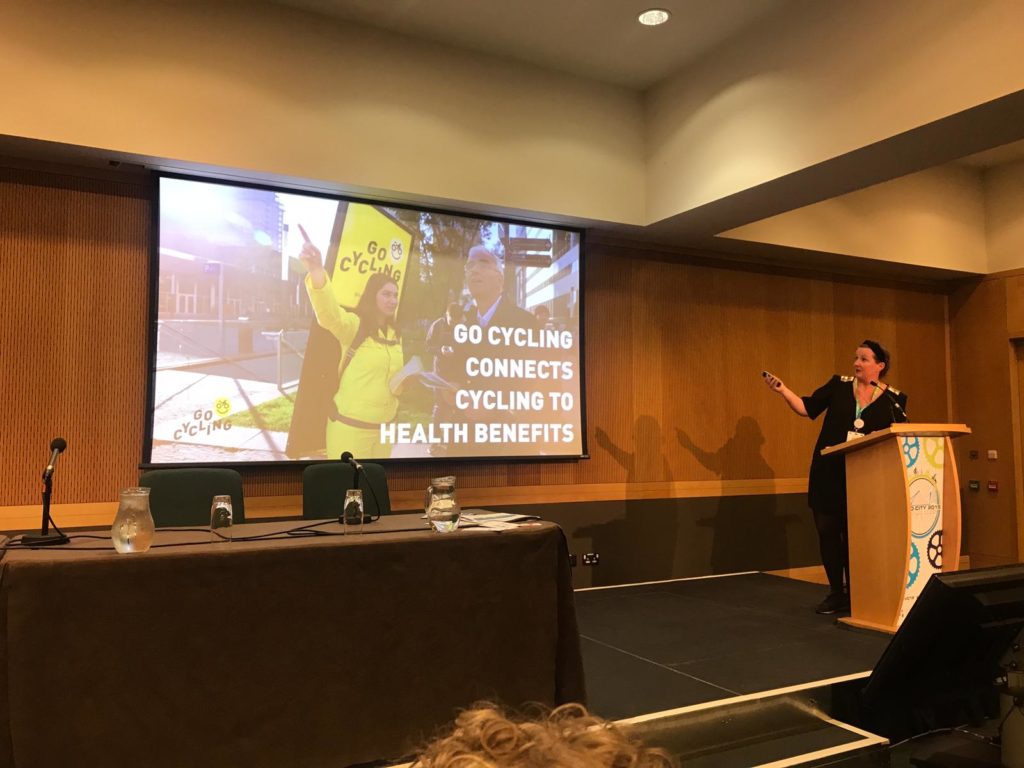
Get involved
– If you are an individual, help us find the perfect Bicycle Mayor in your city or apply to become one yourself
– If you are a company, bring in BYCS to Work as a way to stimulate cycling within your organization or partner up with us to implement the BAB or BYCS Lab locally
– If you are a government body, let’s conduct an Impact Index survey and open a BYCS Lab, to identify the opportunity and create local solutions. Let’s find your city a Bicycle Mayor or you could
adopt and host one of our inspirational international programs like the BAB
– If you are a mission-aligned organization or a funder, partner with us to scale up our existing programs or work with us on a new creative collaboration to help us achieve 50by30
The programs have been developed by BYCS to help achieve its mission of 50by30: 50% of all city trips by bike by 2030. BYCS is now encouraging businesses, governments, funders and
collaborators to help grow these programs around the world, to radically increase the numbers of people cycling.
Maud de Vries, CEO of BYCS:
There is a lot to do to get to 50by30. But looking at what we’ve achieved so far, from the amazing work of the Bicycle Mayors to the commitment of our partners, and the impact of our programs, we are more motivated than ever. We are thrilled to offer a complete portfolio of programs that means that any city, anywhere can be part of the success story of cycling. Together, we can improve the quality of life for cities and citizens around the world.

